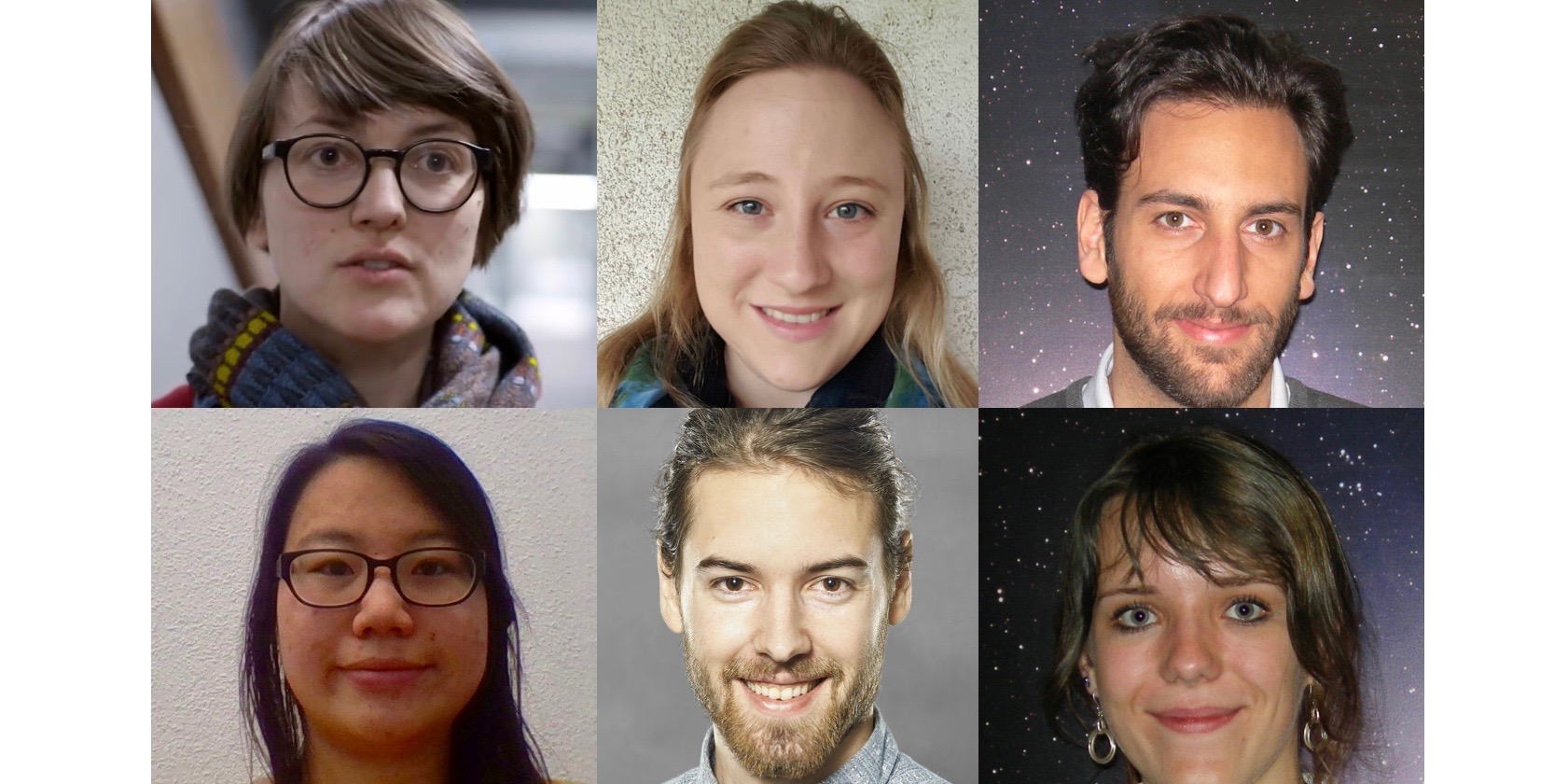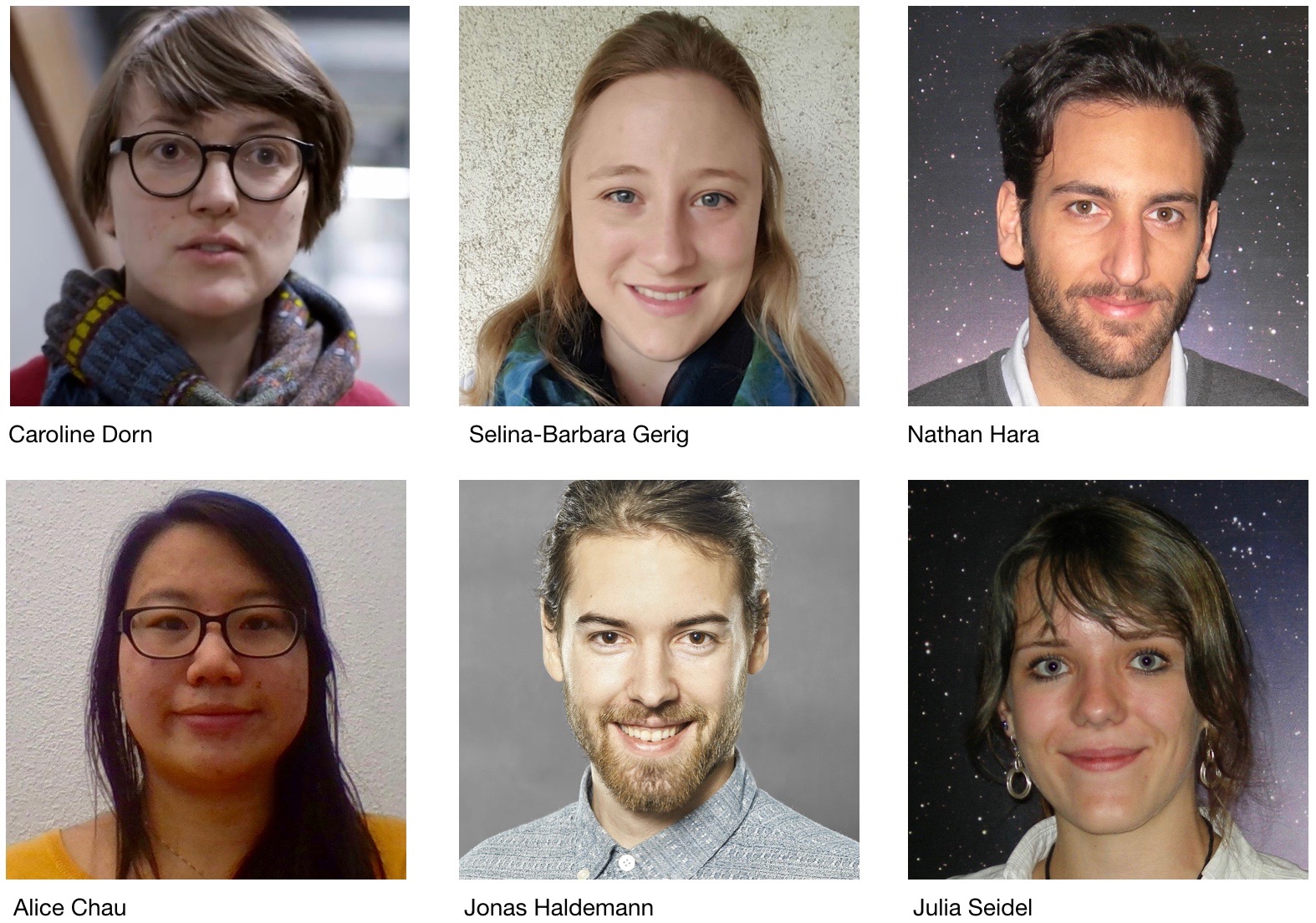“We are the majority of PlanetS”

Currently attached to the NCCR PlanetS are 56 PhDs, 46 PostDocs, 32 Senior Scientists, and 18 permanent positions. To make their concerns heard, the young scientists joined forces and elected representatives. Caroline Dorn is one of them: “I think, the way how we do science is effecting what we do in science. That’s something to keep in mind,” she says.
 Who are the YoungScientists?
Who are the YoungScientists?
Caroline Dorn/YoungScientists: The YoungScientists are all the PhDs and PostDoc that are members or associates of PlanetS. These make up 67% of the people in PlanetS. So, we are the majority. What is new is that we put representatives in place.
These are: Selina-Barbara Gerig (PhD) and Jonas Haldemann (PhD) from Bern, Julia Seidel (PhD) and Nathan Hara (PostDoc) from Geneva, and Alice Chau (PhD) and Caroline Dorn (Ambizione Fellow) from Zürich.
Our goal is to ease the transfer of information between the board and the YoungScientist, and to make proposals to the board based on concerns or ideas from the YoungScientists.
What do you want to achieve?
PlanetS has created and creates numerous positions for YoungScientists. However, the long-term perspectives regarding permanent positions are unchanged – if not worse, because there are now more people to compete for the few positions. The responsibility of running a PlanetS involves a longer-term perspective of exoplanetary science in Switzerland and abroad. Our goal is to raise awareness for these responsibilities that come along with an NCCR for their YoungScientists.
What will you do to reach your goal and what do you expect from the PlanetS board?
The representatives collect ideas and concerns from the YoungScientists, develop them into implementable ideas and propose them to the NCCR board. We expect that our proposals are seriously considered and that we can have have fruitful and constructive discussions with the board on the implementation of our proposals. I am sure there will be ideas that touch local institute policies that cannot be executed by PlanetS. However, people of the PlanetS board also mostly have decision-making positions at their local institutes. And thus, there will be the need for the representatives to exchange with the local staff (Mittelbau) representatives.
How was the election of the 6 representatives organized? Was it easy to find candidates?
Every location (Bern, Geneva & Lausanne, and Zürich) organized the election on their own. And yes, it was easy to find candidates. At this point we are setting up our organization – we are essentially inventing our role and functions. For this first year, I think it will be crucial for us to show to both the YoungScientists as well as the PlanetS board that we make a useful contribution.
How does a young scientist feel? Is research becoming more like top-class sport with few winners and many losers?
From what I experience, hear, and observe: We are all driven by the curiosity for our subjects. But, we quickly realize that academia is a big lottery in which there is at maximum only a permanent position for every 9th person available! It’s an impressive number with obvious consequences: our future is uncertain although we put so much passion and effort in our work. That’s very frustrating. And this is certainly part of the reasons why some PhD candidates left PlanetS before finishing their PhDs.
I think competition is good only if it’s healthy. But what does that mean? It should certainly not mean that academia implicitly filters out many people based on non-scientific aspects: the will to settle or start a family, and also: gender and color. But we know that’s happening. And to give you an example: among all PhDs and PostDocs in PlanetS there is only a single women that has family!

